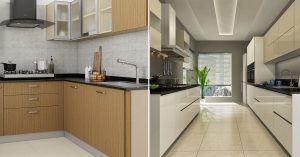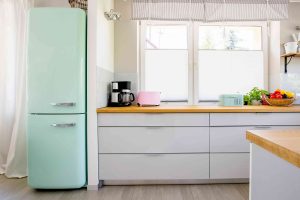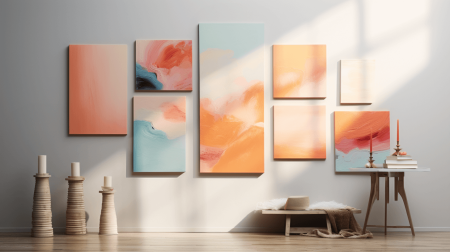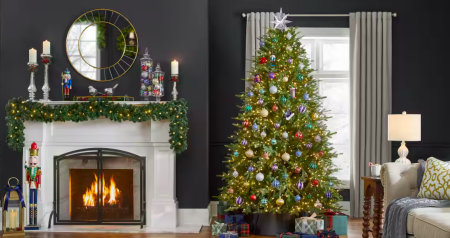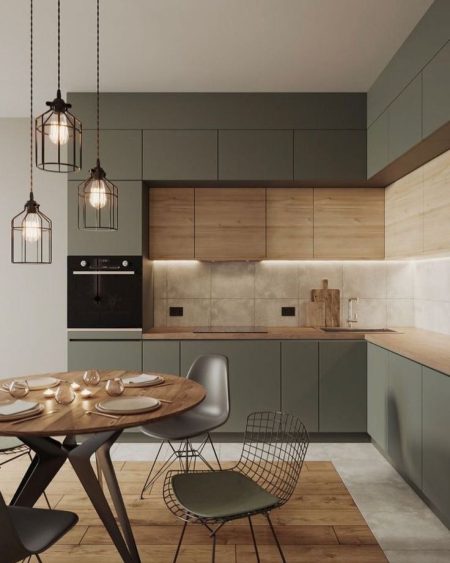If you’re looking to elevate your space with a touch of elegance and style, you’re in the right place. Wall paneling is an effective way to enhance the aesthetic appeal and functionality of interior spaces. It involves covering the walls with different materials to achieve various design effects, improve insulation, and provide durability. There are several types of wall paneling materials available, each with its own unique characteristics and benefits.
Each type of wall paneling material offers its own set of advantages, and the best choice depends on factors such as the desired aesthetics, functionality, budget, and specific requirements of the space. By considering these advantages, you can select the most suitable wall paneling material for your project.
In the latest times, there are many ways one can decorate or redecorate their walls especially when there is multiple wall paneling material available on the market. The ease with which you may install wall paneling on top of already-built structures to update walls is only one of its many advantages. Unlike other decorations, these designs don’t require much time or labor. They have a long lifespan and can make the surfaces more resilient. Additionally, they provide insulation, smooth rough edges, and aid in concealing computer and television connections. Different materials, including wood, PVC, plastic, MDF, and textiles, are used to create various styles. We shall examine many forms of this material in this post.
What is Wall Paneling?
Choosing the suitable wall panel material may occasionally be a daunting undertaking with the variety of possibilities available on the market. Wall paneling is one useful option when considering building a beautiful utility wall, hiding a dingy area or cables and equipment, building a background, etc. It is an excellent choice for interiors since it offers increased durability. It is the finest approach to making your home seem organized. Compared to wallpaper, they are more enduring surface treatments that may change the overall aesthetic appeal of a room.
Different Types Of Wall Paneling Materials
Most paneling materials are very durable, simple to maintain, and may be put on the ceiling to provide a decorative touch to the room. These are fastened either by fastening them directly or mounting them on a metal grid frame that is fastened to the surface. The top materials on the market are listed below.
Also Read: How to install wood wall paneling
-
MDF Paneling: The Perfect Canvas for Creativity:
Seeking a cost-effective option without compromising on style? Enter Medium-Density Fiberboard (MDF) paneling. Engineered from wood fibers and resin, MDF provides a smooth and uniform surface that can be easily painted, allowing you to unleash your creativity. With a range of styles, such as beadboard or shiplap, MDF paneling offers an affordable way to achieve a tailored look.
Benefits:
-
- Provides a consistent and smooth surface for painting or applying veneers.
- Offers excellent dimensional stability, reducing the risk of warping or cracking.
- Easy to install and work with due to its uniform composition.
- Suitable for creating intricate designs and patterns.
-
PVC Paneling: Durability Meets Versatility:

When moisture resistance is a priority, PVC wall paneling takes the spotlight. Engineered from Polyvinyl Chloride, these panels are lightweight, durable, and perfect for high-humidity areas like bathrooms and kitchens. With a wide array of colors and textures, PVC panels effortlessly mimic the look of wood or tile, granting you design flexibility and low-maintenance benefits.
Benefits:
-
- It is waterproof and easy to clean, making it low-maintenance.
- Resistant to rot, corrosion, and fading.
- Provides good thermal and sound insulation properties.
- Offers a wide range of design options for contemporary and modern aesthetics.
-
Mirror wall: Illusion of space:

It is a design element where an entire wall or a significant portion of it is covered with mirrors. This technique is used to create a reflective surface that visually expands the space, adds depth, and enhances the overall aesthetics of the room. Mirror walls can be found in various settings, such as homes, retail stores, fitness studios, and dance studios. They offer a multitude of benefits, including the perception of increased space, improved lighting, decorative impact, functional usage, and artistic possibilities. Whether used in residential or commercial settings, mirror walls can transform a room, making it more visually appealing, spacious, and dynamic.
Benefits:
- Increased Light and Brightness
- Visual Interest and Focal Point
- Easy to Clean and maintain.
-
Wooden Wall Panels:

Wood paneling is a classic choice that brings warmth and natural beauty to any room. It comes in various forms, such as solid wood panels, veneer panels, or engineered wood panels. Wood paneling offers versatility in terms of finishes, including different stains and textures, allowing you to achieve traditional or contemporary looks. Wood paneling is a timeless choice that brings warmth, elegance, and a natural ambiance to any room. It comes in a variety of options, including solid wood panels, engineered wood panels, and reclaimed wood panels. Wood paneling is versatile and can be used in traditional, rustic, or contemporary interiors. It is ideal for living rooms, bedrooms, offices, and restaurants.
Benefits:
-
- Enhances visual appeal and adds a cozy atmosphere.
- Offers excellent acoustic insulation.
- Can be easily customized with stains, paints, or finishes.
- Provides durability and longevity when properly maintained.

Upholstered panels are wall panels that are covered with fabric or leather, creating a soft and padded surface. They are designed to enhance the aesthetics of a room while providing functional benefits. They provide both aesthetic and functional benefits. They enhance the visual appeal of a room, improve acoustics, offer thermal insulation, add comfort, conceal wall imperfections, and are relatively easy to maintain. Whether used in residential or commercial settings, upholstered panels can transform walls into stylish and functional elements of interior design.
Benefits:
-
- Commonly used in bedrooms, lounges, or reading areas where comfort is a priority.
- Useful in spaces where noise control and good acoustics are important, such as home theaters, recording studios, offices, or restaurants.
- Ability to conceal wall imperfections
- Relatively easy to maintain.
Choose McCoy Mart to get High-Quality Wall Paneling Material
You can get one from McCoy Mart now that you know the several options available for this product. It is an online store that offers high-quality renovation and home improvement products. They sell genuine things for fair prices. Even more, savings are possible with each transaction if you have a pro account. You can also alter the browser and app settings to customize the outcomes.
Conclusion:
Choosing the right wall paneling material is crucial to achieving the desired aesthetic and functionality in your interior space. Whether you prefer the natural warmth of wood, the sleekness of PVC, the elegance of stone, or the softness of fabric, there is a paneling material that suits your style and requirements. Consider factors such as durability, maintenance, acoustic properties, and the specific environment where the panels will be installed. By exploring the various options available, you can transform your walls into stunning focal points that elevate the overall appeal of your space.
Read the full article here


